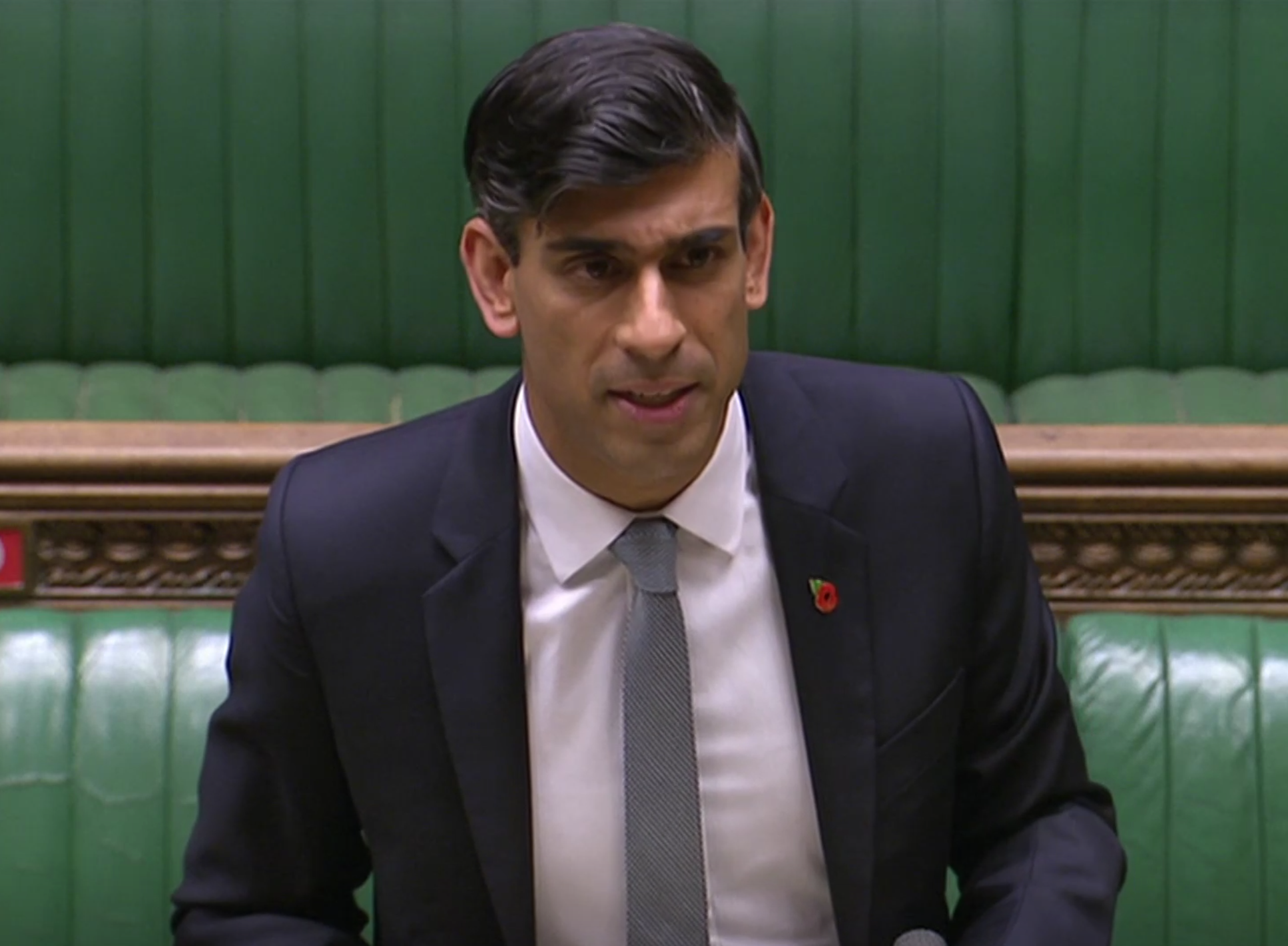Rishi Sunak’s spending review: what he said – and what he really meant
Our chief political commentator imagines the chancellor’s internal monologue as he announced his public spending plans


What Rishi Sunak said: Today’s spending review delivers on the priorities of the British people.
And what he really meant: It is a New Labour phrase; I am the new Tony Blair; and I have outspent Gordon Brown.
What he said: Due to elevated borrowing levels, and a forecast persistent current deficit, underlying debt is forecast to continue rising in every year, reaching 97.5 per cent of GDP in ’25/26.
What he meant: Borrowing increases debt. I am a trained economist.
What he said: This situation is clearly unsustainable over the medium term.
What he meant: My successor will have to do something about it.
What he said: We have a responsibility, once the economy recovers, to return to a sustainable fiscal position.
What he meant: Tomorrow, and tomorrow, and tomorrow.
What he said: The UK’s unemployment rate is lower than Italy, France, Spain, Canada and the United States.
What he meant: Five wrongs make a right.
What he said: Coronavirus has deepened the disparity between public and private sector wages ... In such a difficult context … I cannot justify a significant across the board pay increase for all public sector workers.
What he meant: I have to find some savings from somewhere or else I might just as well hand over to John McDonnell.
What he said: We will protect those on lower incomes. The 2.1 million public sector workers who earn below the median wage of £24,000 will be guaranteed a pay rise of at least £250 ... the majority of public sector workers will see their pay increase next year.
What he meant: I am virtually a socialist.
What he said: We’re funding the prime minister’s commitment to rebuild 500 schools over the next decade.
What he meant: Boris has some funny ideas.
What he said: New hospitals, better schools, safer streets – the British people’s priorities are this government’s priorities.
What he meant: I am the new Tony Blair, but there’s a catch.
What he said: This country has always and will always be open and outward-looking, leading in solving the world’s toughest problems. But...
What he meant: One of the people’s priorities is to cut foreign aid.
What he said: I have listened with great respect to those who have argued passionately to retain this target.
What he meant: They are wrong.
What he said: We should, however, judge our standing in the world not just by the money we spend but by the causes we advance and the values we defend.
What he meant: The cut in aid confirms that this Vote Leave government is the narrow-minded, inward-looking, fortress-Britain reactionary outfit it was accused of being.
What he said: Our plans deliver the highest sustained level of public investment in more than 40 years.
What he meant: Forty years takes you back to 1980. The rot set in with Margaret Thatcher.
What he said: Our capital plans will invest in the greener future we promised. Delivering the prime minister’s 10-point plan for climate change.
What he meant: It’s green moonshine and it’s nothing to do with me. Address complaints next door.
What he said: We’re publishing today a comprehensive new national infrastructure strategy.
What he meant: The comprehensive old national infrastructure strategy has been comprehensively ignored.
What he said: I have one further announcement to make.
What he meant: The prime minister said I had to give people something to cheer, and this is the best we could come up with.
What he said: Today I’m announcing a new Levelling Up Fund worth £4bn … taking a new, holistic, place-based approach to the needs of local areas.
What he meant: Holistic. Pathetic, isn’t it?
What he said: I cannot deny numbers alone can ring hollow.
What he meant: Never mind all that. Most people go a bit number-blind after a couple of millions or billions and anyway the numbers are depressing. Let’s have a bit of rhetorical uplift instead.
What he said: When asked what our vision for the future of this country is, we cannot point to a shopping list of announcements and feel the job is done.
What he meant: Ignore everything I’ve just said, here comes the flowery bit.
What he said: Good work remains the most rewarding and sustainable path to prosperity.
What he meant: No, wait, there is more.
What he said: Encouraging the individual and community brilliance on which a thriving society depends, remains, as ever, a work unfinished.
What he meant: I hope not to be chancellor for too long.
What he said: The spending announced today is secondary to the courage, wisdom, kindness and creativity it unleashes. These are the incalculable but essential parts of our future, and they cannot be mandated or distributed by government.
What he meant: I need Tory MPs to vote for me to be prime minister, so even though I’m outspending all Labour governments ever, put together, I have to pretend this doesn’t take away from individual responsibility.
What he said: These things must come from each of us, and be shared freely, because the future, this better country, is a common endeavour.
What he meant: Will anyone notice I have plagiarised Tony Blair’s Clause IV on aims and values?
Join our commenting forum
Join thought-provoking conversations, follow other Independent readers and see their replies
Comments